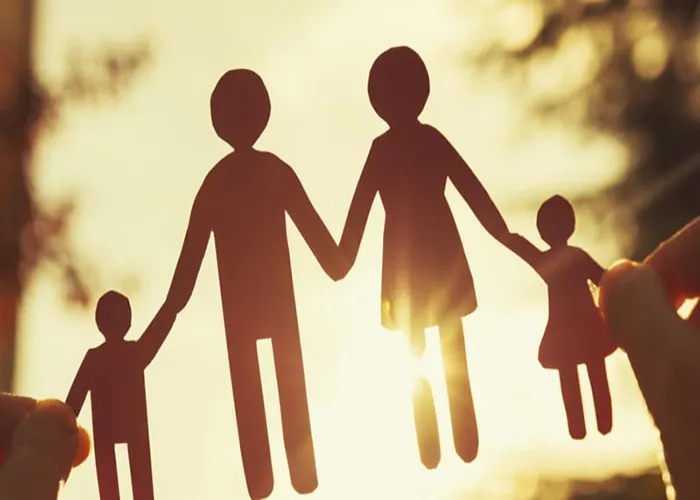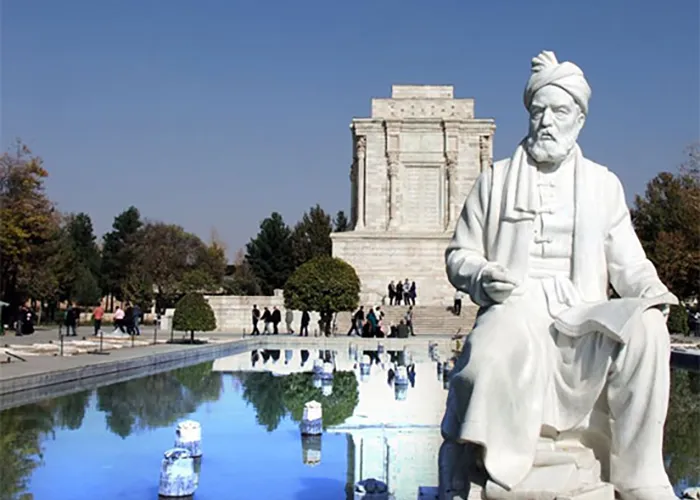Topic of the Week – Volume01 Issue24
The Approach of Islamic Values in Strengthening Family Foundations (Part three)
Seyed Hashem Moosavi
“In the previous two parts of this article, we discussed how the family, as the smallest yet most fundamental social institution in Islamic culture, holds a special place, and its health and strength play a pivotal role in the progress of society. We also mentioned that Islamic values, including belief in God Almighty, fairness, justice, and adherence to ethics, play a fundamental role in strengthening the foundation of the family. These values create an atmosphere of love, empathy, and stability within the family, transforming it into a strong and effective institution within society.
In the final part of this discourse, we will examine another Islamic value and its role in strengthening and safeguarding the foundation of the family in the face of modern-day challenges.”
Emphasis on the Importance of Women’s Education in Islam
Islam emphasizes the unique and independent status of women in the universe and social life, placing them in the pivotal role of nurturing future generations. As Imam Khomeini (RA), the prominent Islamic scholar of the century, states: “A woman is a great human being and the nurturer of society. She embodies the realization of humanity’s aspirations.” Therefore, creating theoretical and practical opportunities for the scientific advancement and intellectual growth of women holds particular significance.
On the other hand, the Noble Prophet of Islam (peace and blessings be upon him) equated religion with intellect, stating: «الدین هو العقل، ومن لا عقل له لا دین له»“Religion is intellect, and one who lacks intellect lacks religion” Based on this, a woman’s religiosity, as a human being, depends on her intellectual growth and her knowledge of divine and human sciences. In other words, knowledge for women paves the way for understanding, faith, certainty, and ultimately righteous actions.
Considering the integration of intellect and religion, alongside the pivotal educational role of women, it was necessary for Islam to adopt one of its clearest foundational stances regarding women, which is “a principled advocacy for education and the promotion of knowledge among women.” Islamic teachings are consistently filled with encouragement-and at times defence-of women’s education across different societies.
Contrary to the restrictive views of some historical cultures and civilizations, Islam has, from its inception, taken a supportive and balanced approach to the education of both men and women, without gender discrimination. The Prophet Muhammad was eager to teach both men and women, seizing every opportunity to impart knowledge.
Women’s Role in Advancing Science and Education in Early Islam
In the early Islamic era, numerous examples and models demonstrate women’s active participation in scientific and practical fields. This historical evidence show that Muslim women played a significant role in disseminating knowledge and educating society.
For instance, Hazrat Khadija (peace be upon her), the wife of the Prophet Muhammad, was highly skilled in commerce. Additionally, Hazrat Fatimah (peace be upon her), the beloved daughter of the Prophet, like her noble father, held the position of a teacher and educator of religious knowledge, never missing an opportunity to educate women.
Historical evidence indicates that the wives and daughters of the Prophet Muhammad and the Infallible Imams, after benefiting from their knowledge, established their own circles of learning and taught both men and women of their time. For example, a report states that a woman from Medina asked Hazrat Fatimah so many questions that she became embarrassed and apologized. However, Hazrat Fatimah replied, “Come and ask whatever you wish… I heard my father say, ‘When our learned followers are gathered on the Day of Judgment, they will be rewarded according to their knowledge and their efforts in guiding God’s servants.”
These historical examples teach us that, according to Islam, men and women are equal in the light of divine teachings. Both can attain all the attributes and qualities that ensure their salvation in this world and the hereafter. The pursuit of knowledge is one of the most important of these attributes, paving the way for their happiness.”
A detailed explanation of the positive effects of women’s education on family life, including spiritual growth, strengthening family relationships, improving mental and physical health, role in child-rearing, and increased participation in family decision-making.
The Impact of Women’s Education on Strengthening Family Bonds
Spiritual and Personal Growth of Women:
Education enhances women’s understanding of religious and ethical values. A woman who is knowledgeable about Islamic teachings can serve as an elevated role model in the family, guiding the family’s life towards strengthening faith and spirituality.
Strengthening Family Relationships:
Educated women are better equipped to manage effective communication within the family. Knowledge of psychology, communication skills, and conflict resolution helps them create a peaceful and positive environment at home.
Improving Mental and Physical Health of the Family:
Educated women are generally more aware of health issues and can play a significant role in maintaining their own health and the health of their family. Moreover, the knowledge and skills acquired through education help women cope better with life’s stresses and problems, preventing mental health issues within the family.
Role in Child-Rearing:
As the first educators of their children, mothers play a crucial role in shaping their children’s personalities. A knowledgeable woman can effectively transmit moral and Islamic values to her children in a way that suits their needs.
Increased Participation in Family Decision-Making:
Education empowers women to play an active role in family decision-making. They can contribute more informed and accurate analyses, helping their spouses make decisions that benefit the entire family.
Challenges and Solutions to Women’s Education
Limiting Traditional Views:
Some traditional viewpoints and non-Islamic cultures perceive women’s education as a hindrance to fulfilling their familial roles. This perspective contradicts Islamic teachings that emphasize the necessity of education for both genders. “Raising awareness through media, mosques, and educational institutions” can be part of the solution to address these views.
Economic and Social Challenges:
In many societies, economic limitations hinder women’s access to education. This challenge can be tackled by “creating free or low-cost educational opportunities and providing financial support to families”.
Balancing Family and Education:
Some women worry that education and work will prevent them from fulfilling their family roles. To address this, we can “promote time management skills and present role models of successful women who have balanced education and family responsibilities.”
The Role of Society in Promoting Women’s Education
Achieving this Islamic value requires the cooperation and support of society. Governments and religious institutions should create conditions where women’s education is recognized as a right and a duty. Some important actions include:
Establishing women-specific universities and educational centres.
Promoting the value of education in Friday sermons and Islamic media.
Recognizing and honouring successful women in academic fields.
It’s important to note that women’s education is not limited to strengthening family foundations; it also directly impacts societal development. Educated women can play active roles in social, cultural, and economic spheres, contributing to a dynamic and progressive society.
Conclusion
Islamic values, emphasizing women’s education, not only recognize their rights but also strengthen their role in solidifying family foundations and raising future generations. Women’s education, on the one hand, contributes to their spiritual and personal growth, and on the other hand, has a positive impact on family relationships, child-rearing, and even societal progress. Therefore, utilizing Islamic teachings to promote this value and overcome its obstacles should be a priority in the programs of Islamic families and societies.
editor's pick
news via inbox
Subscribe to the newsletter.




